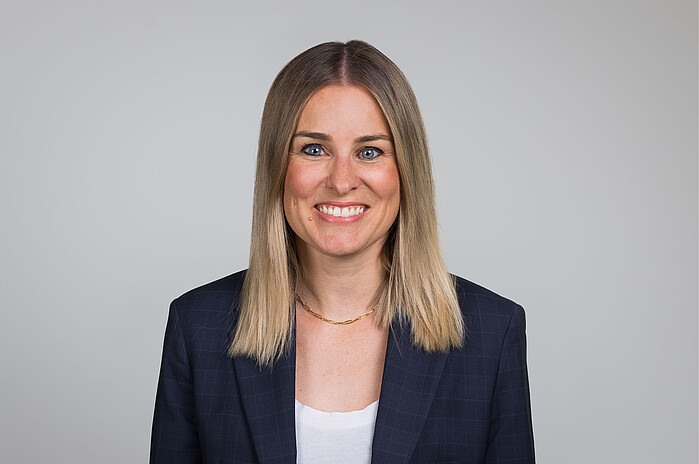
Since the sharp change in direction by the Swiss National Bank (SNB) in June 2022, the market for rental apartments has seen dramatic developments. The SNB increased the benchmark interest rate for the first time in 15 years in an effort to curb rising inflation and general price pressure. Since 2023 landlords have therefore been increasing rents for tenants in line with the moves in the reference interest rate.
But it is not only rents that have been rising, accessory charges are also trending upwards. Compared to the period from 2012 to 2021 when heating and energy costs were mostly stable, accessory charges have been rising on the back of geopolitical tensions. According to calculations by Credit Suisse, accessory charges for apartments heated by oil or gas rose by 38% in 2021. Wüest Partner cites an increase in accessory charges of 20% for the same period.1 In addition, electricity bills are likely up 27%, even with consumption unchanged. Wüest Partner expects accessory charges to trend sideways in 2024,2 but this is just a rough estimate. Current geopolitical developments mean that energy prices are likely to be highly volatile throughout the year.
Introduction and Description of the Problem
In addition to rent for the apartment or offices, tenants also have to cover accessory charges that are not included in the rent, provided this is clearly agreed in the lease.
Accessory charges are becoming ever more important as both consumption-related and neutral costs have been rising steadily over the past few years due to the economic environment, and are continuing to do so at present. Technology is also advancing rapidly, and more and more landlords and property managers are introducing tenant apps for communication purposes, which generate costs, or special locking systems controlled via smartphones, which require additional maintenance. Technical innovations in properties can also add to the accessory charges. Careful and sustainable husbanding of resources is therefore all the more important.
There are also costs that may not be passed on to tenants, such as taxes, insurance premiums, and maintenance and repair costs. It is not always easy to clearly separate costs such as maintenance and repairs, making it difficult to differentiate between services that may or may not be included in accessory charges, and there are different opinions in practice about some of these. Contrasting views give rise to disputes that require investigation by arbitration boards and courts.
Definition of Accessory Charges
Accessory charges are the consideration due for services provided by the landlord or a third party in connection with the use of the property (Art. 257 Swiss Code of Obligations, SCO). In addition to renting the residential and commercial premises, the landlord also provides the required infrastructure, such as heating, water, electricity, maintenance, garden and landscaping work, etc. The actual outlays are billed separately as accessory charges to tenants, provided this is specifically agreed in the lease.
The administrative expenses for preparing a statement of accessory charges may be billed to tenants.
The law does not provide an exhaustive list of accessory charges, but defines these in Art. 257b(1) SCO as heating, hot water and other operating costs, as well as public taxes arising from the use of the property.
Conditions for Collection
Art. 257a(2) SCO governs the collection of accessory charges. The tenant and landlord must contractually agree on the payment of accessory charges.
If accessory charges are not specifically agreed, they are covered by the net rent and must be borne by the landlord.
Accessory charges must always be agreed in writing if there is a written lease. An oral agreement is not sufficient.
It must be clear to tenants which costs they are responsible for in addition to the net rent. Simply listing heating costs, for example, is not enough - unless separately agreed in the lease, these do not automatically include the costs for hot water, even if the hot water is generated by a central heating system.
The landlord cannot list services that may not be included in accessory charges in the lease in order to pass them on to tenants, as this is contrary to the legal principle that the service must be connected with the use of the property.
Services that may be included in accessory charges must actually have been provided and the outlays must have been made. It is therefore not possible to charge a flat fee based on a service provided in the previous year because the invoice for the service is not yet available. In contrast to the net rent, landlords may not earn a profit on accessory charges.
If accessory charges are accounted for and billed separately, these costs may not be included in the calculation of the net rent.
Charging Methods
The landlord can apply one of four different methods to collect the agreed accessory charges:
- Enter into a contractual agreement to collect a monthly advance payment in addition to the net rent, with an annual statement of the actual accessory charges incurred
- Agree a flat rate for the accessory charges
- Include the accessory charges in the rent
- Have accessory charges paid directly to the third-party provider
The lease can also make provision for a combination of different methods.
If it is unclear whether the parties have agreed to flat-rate payments or advance payments, it must be assumed in case of doubt that they have agreed the latter, as the system of making advance payments fits better with the principle of actual outlays under Article 257b(1) SCO.
Findings
Interviews with lawyers specialising in tenancy law (for both landlords and tenants) lead to the clear conclusion that in practice the legal representatives of landlords and tenants generally agree on the legal aspects. However, opinions differ in part on topics that are not clearly regulated.
After researching the literature, the main conclusion has to be that the law (the Swiss Code of Obligations) and the Ordinance on the Rental and Leasing of Residential and Business Premises do not contain sufficiently clear rules on accessory charges. Some opinions and judgments published by the Federal Supreme Court do, however, provide more clarity regarding the fairly limited number of legal provisions and regulations.
This shows that there is currently considerable potential for conflict between tenants and landlords on the subject of accessory charges. They will remain a topic posing major challenges. Clear, transparent and fair rules are not only necessary from the legal perspective, but are also indispensable for ensuring good relationships with tenants.
1 NZZ article, 28.10.2022; Uncomfortable prospects for tenants: following the increase in accessory charges, rents could also rise soon (in German only).
2 Wüest Partner, Immo Monitoring, 2024
Authors



![[Translate to Englisch:] [Translate to Englisch:]](/assets/group/_processed_/3/c/csm_Asylstrasse_7_b78b178e3b.jpg)